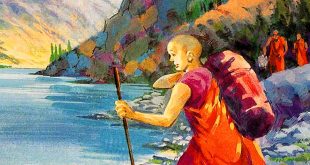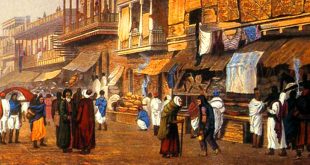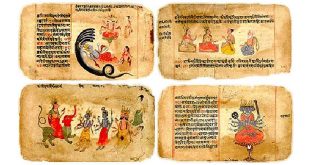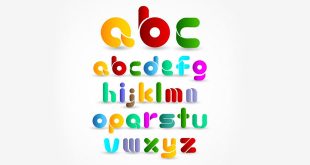Question: Where can evidence of trade be found? Answer: Evidence of trade can be found in the Sangam poems. Question: What was South India famous for? Answer: It was famous for items like gold and precious stones and spices like pepper. Question: How can you say that Rome had a …
Read More »Search Results for: School
NCERT 7th Class (CBSE) Social Science: The Growth of Regional Cultures
Question: Name two famous works of Persian literature and their authors from Medieval India. Answer: The historian Barani, wrote the Tarikh-i-Firuz Shahi and Abdul Fazl wrote the biography of Akbar Akbarnama and Ain-i-Akbari. Question: What was the language and dialect of the book Padmavat? What was its theme? Answer: Malik …
Read More »NCERT 6th Class (CBSE) Social Science: The Vedic Age
Question: Name the four Vedas. Answer: The four Vedas are: Rigveda Samaveda Yajurveda Atharvaveda Question: In what language has the Rigveda been composed? Answer: The Rigveda is in Vedic Sanskrit. Question: What were the various purposes of fighting battles as depicted by the Rigveda? Answer: Battles were fought for cattle, …
Read More »NCERT 6th Class (CBSE) Science: Garbage In, Garbage Out
Question: Distinguish between bio-degradable and non bio-degradable. Answer: Biodegradable waste: Waste that will decay and mix with soil. Microorganisms can convert this waste into simpler from. Peels, meat, leaves are the example. Non biodegradable wast: Waste that will not decay and mix soil. Microorganisms cannot convert this waste into simpler …
Read More »NCERT 6th Class (CBSE) Science: Water and Its Importance
Question: How to conserve water? Answer: The various ways to conserve water are: Creating awareness among people about the need and ways to conserve water. Turn off the taps immediately after use. We should get the baking taps repaired immediately. Wash the utensils by filling water basin. We should take …
Read More »NCERT 6th Class (CBSE) Science: Measurements and Motion
Question: When is an object said to be in motion? Answer: An object is said to be in motion when its position change with time in respect to a stationary object. Question: Differentiate between rotatory motion and translatory motion. Answer: Rotatory motion: Different parts of the body caver different distances is …
Read More »NCERT 7th Class (CBSE) Social Science: Role Played by Gender
Question: What do you understand by the term gender? Answer: The way each society perceives what a ‘man’ is and what a ‘woman’ is, and what their different roles and responsibilities are, is called gender. It is more than the biological difference between men and women. Question: What is a stereotyping? Give …
Read More »Appositive Examples: Appositive for Students and Children
What happens when you miss out a part of your sentence either while reading or writing? It becomes meaningless and incomplete. This phenomenon, often considered sacrosanct, doesn’t really apply to a sentence with an appositive. Appositive is an excellent tool that can be defined as a noun or phrase of …
Read More »Antonomasia Examples: Antonomasia for Students and Children
From our ancestors come our names, but from our virtues come ‘antonomasia’! Antonomasia is that figure of speech that employs a suitable epithet or appellative to cite a person or thing rather than the original name. Confused? Don’t be! To put it in simple terms, antonomasia is a rhetoric way …
Read More »Antecedent Examples: Antecedent for Students and Children
There are certain sets of rules in grammar that you have to follow in order to ensure right usage of the language. Antecedents, with which you might be quite familiar, assist you in framing sentences on your own. Antecedents can be understood as words, phrases or even clauses that have …
Read More » Class Notes NCERT Solutions for CBSE Students
Class Notes NCERT Solutions for CBSE Students








